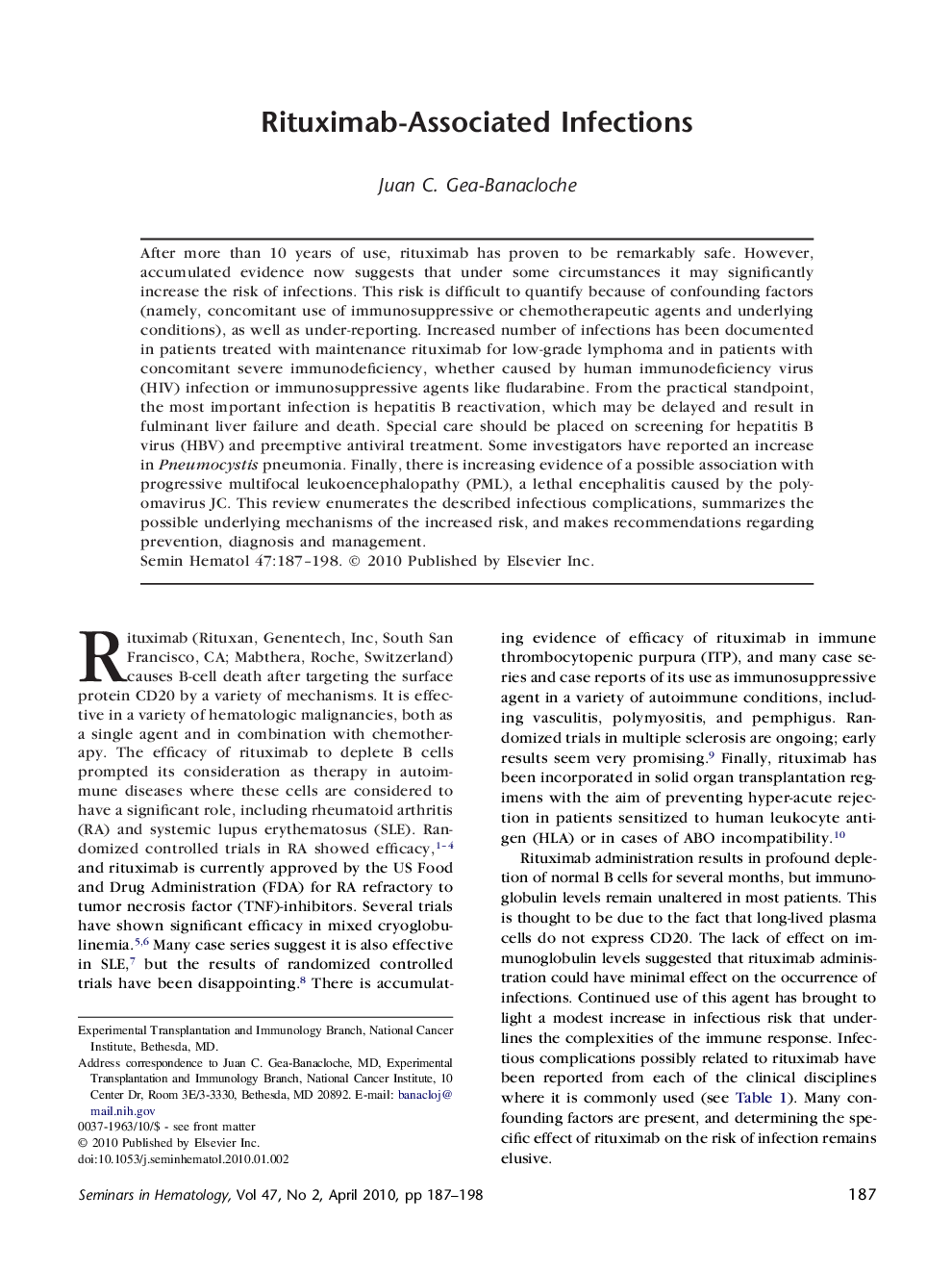| Article ID | Journal | Published Year | Pages | File Type |
|---|---|---|---|---|
| 3333678 | Seminars in Hematology | 2010 | 12 Pages |
After more than 10 years of use, rituximab has proven to be remarkably safe. However, accumulated evidence now suggests that under some circumstances it may significantly increase the risk of infections. This risk is difficult to quantify because of confounding factors (namely, concomitant use of immunosuppressive or chemotherapeutic agents and underlying conditions), as well as under-reporting. Increased number of infections has been documented in patients treated with maintenance rituximab for low-grade lymphoma and in patients with concomitant severe immunodeficiency, whether caused by human immunodeficiency virus (HIV) infection or immunosuppressive agents like fludarabine. From the practical standpoint, the most important infection is hepatitis B reactivation, which may be delayed and result in fulminant liver failure and death. Special care should be placed on screening for hepatitis B virus (HBV) and preemptive antiviral treatment. Some investigators have reported an increase in Pneumocystis pneumonia. Finally, there is increasing evidence of a possible association with progressive multifocal leukoencephalopathy (PML), a lethal encephalitis caused by the polyomavirus JC. This review enumerates the described infectious complications, summarizes the possible underlying mechanisms of the increased risk, and makes recommendations regarding prevention, diagnosis and management.
